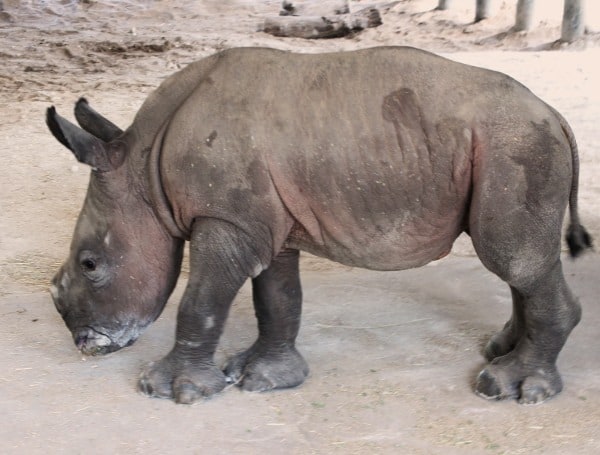TAMPA, Fla. – ZooTampa just welcomed a baby southern white rhino to the family. The calf was born during the overnight hours of Sunday, June 6, 2021.
The female calf and her mom, 20 -year-old Alake, an experienced mother, are doing well. The baby rhino appears to be strong and is nursing alongside her mother. This birth marks the 8th southern white rhino calf born at ZooTampa.
Alake was paired with male Ongava through the Species Survival Plans (SSP) overseen by the Association of Zoos and Aquariums (AZA) ensure the survival of these protected species.
“These babies and the rest of our southern white rhino herd are wonderful ambassadors for their species, giving our guests the opportunity to connect with and appreciate these magnificent animals,” said Dr. Larry Killmar, chief zoological officer. “The Zoo’s efforts to save this species is yet another example of the leadership role that ZooTampa plays in conserving important species both at home and around the world.”
The yet-to-be-named rhino is expected to join the “crash” – the term for a group of rhinos –in the coming weeks. Guests will be able to see the baby aboard the new Expedition Wild Africa which is scheduled to open soon.
The southern white rhino population had dwindled to an estimated 50-200 individuals at the beginning of the 20th century, but through conservation efforts, the population of white rhinos in their native range in Africa has rebounded to about 20,400 animals. However, the species remains classified as near threatened by the International Union for Conservation of Nature (IUCN) due to threats in the wild due to habitat loss and illegal poaching for their horns.
Support journalism by clicking here to our gofundme or sign up for our free newsletter by clicking here
Android Users, Click Here To Download The Free Press App And Never Miss A Story. It’s Free And Coming To Apple Users Soon.


